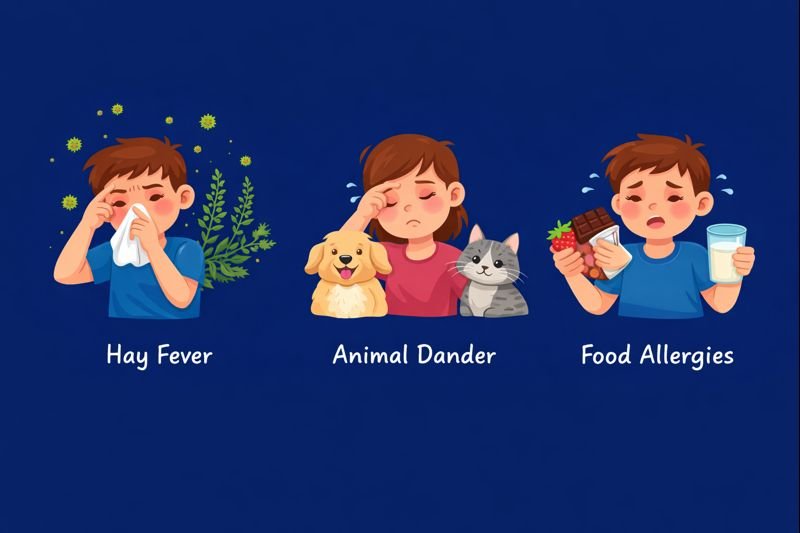Puffy Eyes from Allergies: Causes and Awareness

First Aid & Workplace Relevance (Canada)
Seasonal allergies and pet-related sensitivities are common across Canada and can affect productivity, comfort, and participation in work or school. Public awareness helps individuals recognize when symptoms are mild and manageable, and when they may indicate a broader allergic response.
Scenario (Mild & Realistic)
During spring pollen season, a colleague noticed her eyes felt itchy and looked puffy after commuting by bike. After arriving indoors and washing her hands and face, the discomfort eased over the next hour.
Hay Fever (Seasonal Allergies)
Seasonal allergies—commonly called hay fever—occur when the immune system reacts to pollen from grasses, trees, or weeds. Ragweed is a well-known trigger in late summer and fall.
Common eye-related symptoms include:
-
Puffy or swollen eyelids
-
Redness or watery eyes
-
Itching
-
Sneezing or nasal irritation
People may also react during spring to tree or mold spores. Pollen levels vary by weather, season, and region.
Animal Dander
Pet allergies are another cause of eye puffiness. Dander from cats, dogs, and other furry animals can linger on clothing and surfaces. Symptoms may include:
-
Sneezing
-
Puffy or itchy eyes
-
Coughing or nasal irritation
Symptoms can appear hours to days after exposure and may persist even after the pet is no longer present due to dander remaining in the environment.
Food Allergies
Food-related allergies can also contribute to swelling around the eyes. When an allergen is consumed, the immune system releases chemicals—including histamine—that can cause blood vessels to dilate and fluid to shift into surrounding tissues.
Other possible symptoms include:
-
Runny nose or watery eyes
-
Skin rashes or redness
-
Coughing or congestion
Reactions can occur within minutes to an hour after eating specific foods such as berries, chocolate, dairy products, or buckwheat. In a small number of cases, food allergies may lead to more serious reactions that require prompt medical attention.
Prevention & Workplace Considerations
Helpful strategies for managing or reducing exposure may include:
-
Checking seasonal pollen forecasts
-
Washing hands and face after outdoor activity
-
Laundering clothing exposed to allergens
-
Reducing indoor dander sources through cleaning and ventilation
-
Participating in workplace wellness programs that address environmental triggers
These measures are not curative but may support comfort and symptom awareness.
FAQ (Educational)
Why do allergies cause puffiness around the eyes?
Allergies trigger immune responses that release chemicals like histamine, which can lead to swelling and fluid buildup in sensitive tissues such as the eyelids.
Are eye-related allergy symptoms always seasonal?
No. Seasonal pollen is a common trigger, but dander, dust, mold, and some foods can also contribute.
Can symptoms appear after the allergen is gone?
Yes. Pet dander, clothing fibres, and airborne particles can linger indoors and extend the reaction.
Do puffy eyes mean a serious allergy?
Not necessarily. Many cases are mild and temporary, though broader symptoms may indicate a more significant allergic response.
Educational Note
This article supports general first aid and public allergy awareness. Allergic reactions vary widely between individuals, and persistent or worsening symptoms may be assessed by healthcare professionals.
